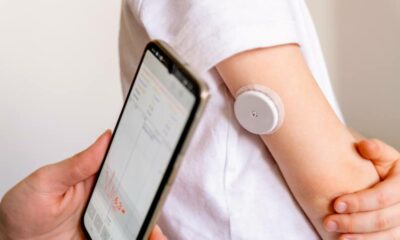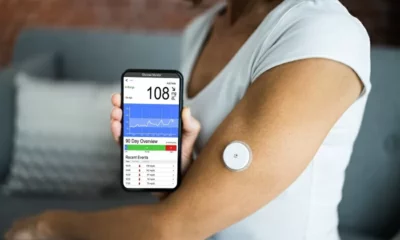The study’s findings, which were published in npj Digital Medicine, demonstrate that when glucose levels were abnormal—that is, noticeably higher or lower than someone’s regular level—cognition was slower. However, some individuals were more vulnerable than others to the cognitive effects of significant glucose swings.
Researchers at Washington State University and McLean Hospital, a part of Mass General Brigham, conducted a new study that showed how naturally occurring glucose variations affect cognitive performance in individuals with type 1 diabetes (T1D). The study made use of technological advancements in digital testing.
“In trying to understand how diabetes impacts the brain, our research shows that it is important to consider not only how people are similar, but also how they differ,” said Zoë Hawks, Ph.D., lead author on the paper and research investigator at McLean.
T1D is an autoimmune condition marked by fluctuations in blood sugar levels. Both extremely low and extremely high glucose levels have been demonstrated to impair cognitive function in laboratory experiments. But due to technological constraints, it was challenging to investigate how naturally occurring glucose fluctuations affected cognition outside of the lab. This was because it was impossible for researchers to collect high-frequency readings repeatedly over time from the same subjects. Measurements at high frequencies are required to determine whether glucose variations affect cognition in the same way for all individuals.
In this study, 200 T1D patients underwent high-frequency, repeated glucose and cognitive testing using smartphone-based cognitive tests and digital glucose monitors. For fifteen days, glucose data were taken every five minutes, while cognitive data were taken three times a day.
Researchers were able to investigate the cognitive effects of naturally occurring glucose variability by discreetly gathering glucose and cognitive data from subjects as they went about their normal lives. Using a large number of data points from each subject, they were able to assess whether there were individual differences in the effects of glucose on cognition using machine learning.
According to the study, sustained attention was not affected by glucose levels that were much higher or lower than normal, although processing speed was. Short-term, moment-to-moment variations in glucose may have an effect on processing speed, but longer-term variations in glucose may have an impact on sustained attention.
Additionally, the researchers discovered that individuals varied in the degree to which glucose variations affected their cognitive speed. Older adults and persons with specific medical disorders, for example, were significantly more affected by glucose fluctuations than others.
Laura Germine, Ph.D., co-senior author of the research and head of McLean’s Laboratory for Brain and Cognitive Health Technology, said, “Our results demonstrate that people can differ a lot from one another in how their brains are impacted by glucose.”
“We found that minimizing glucose fluctuations in daily life is important for optimizing processing speed, and this is especially true for people who are older or have other diabetes-related health conditions.”
One unexpected finding was that, although performance declined when glucose levels increased even further, participants’ peak cognitive performance was correlated with glucose levels that were marginally beyond their usual range.
“This was an important finding,” co-senior author Naomi Chaytor, Ph.D., a professor and department chair at Washington State University Elson S. Floyd College of Medicine, said. “People with diabetes often report feeling better at a glucose level that is higher than what is considered healthy.”
“It could be that your brain habituates to a glucose level that it is used to. So a next step in this research is to see whether the glucose level associated with peak performance shifts down into the normal range when the amount of time spent above range is reduced, which can be achieved through use of automated diabetes management systems.”

 Diabetology2 weeks ago
Diabetology2 weeks ago
 Diabetology7 days ago
Diabetology7 days ago
 Diabetology5 days ago
Diabetology5 days ago
 Diabetology6 days ago
Diabetology6 days ago
 Diabetology6 days ago
Diabetology6 days ago
 Diabetology3 days ago
Diabetology3 days ago
 Diabetology3 days ago
Diabetology3 days ago
 Diabetology19 hours ago
Diabetology19 hours ago
















